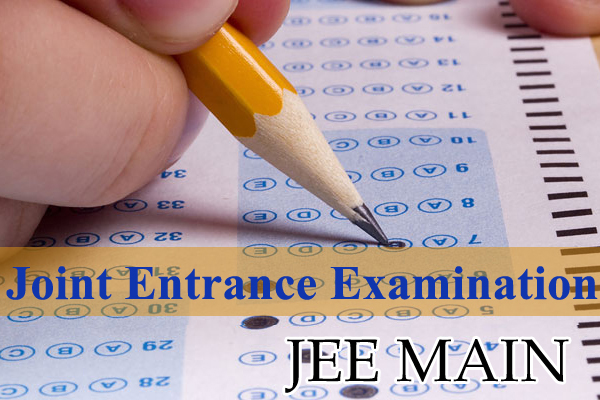



|
Tweet
Pin
It
|
From 2013 onwards, admission to the undergraduate courses in engineering in all Union government funded technical institutes and various other self financing institutes will be carried out through a single national level entrance test. Named as Joint Entrance Examination (JEE), this entrance will replace 2 major engineering entrance examinations in India, JEE (Joint Entrance Examination) held by the IITs and AIEEE (All India Engineering Entrance Examination) conducted by the CBSE (Central Board of Secondary Education). In pursuance of Ministry of Human Resource Development, Government of India, the Joint Entrance Examination (Main) will be conducted by the JEE Apex Board for admission to Undergraduate Engineering Programmes in National Institutes of Technology (NITs), Indian Institutes of Information Technology (IIITs), Centrally Funded Technical Institutes (CFTIs) etc. Now, AIEEE will be known as JEE (Main) and IIT - JEE as JEE (Advanced).
The JEE (Main) will also be an eligibility test for the JEE (Advanced), which the candidate has to take if he/she is aspiring for admission to the undergraduate programmes offered by the IITs/ISM Dhanbad.
The JEE scheme of examination will benefit the student by way of reducing stress for students. Aspirants will not have to prepare for multiple test syllabus and can focus on the preparation of a single test. The CBSE Board will hold the JEE (Joint Entrance Exam) which serve as the only entrance exam for admissions to undergraduate courses in all technical colleges in India. JEE will be adopted by 15 Indian Institutes of Technology (IITs), 30 National Institutes of Technology (NITs), 4 Indian Institutes of Information Technology (IIITs), 5 Indian Institutes of Science Education and Research (IISERs) and central technical universities. All states in India have accepted the proposal of a common national level single entrance test where specific weightage will be assigned to Main exam scores as well as state board class XII exam scores which will be normalized based on the percentile formula.
JEE which has been designed to give more weightage to Std XII exam results, will be conducted in two parts, JEE-Main and JEE-Advanced. JEE (Main) will two papers, Paper-1 and Paper-2. Candidates may take Paper-1, or Paper-2, or both as per the course(s) they are seeking admission to. The Paper-1 of JEE (Main) will also be an eligibility test for the JEE (Advanced), which the candidate has to take if he/she is aspiring for admission to the undergraduate programmes offered by the IITs.
JEE Main - An expanded Joint Admission Board (JAB) will be set up for the conduct of JEE Main examination. The reconstituted board will include, in an appropriate manner, NITs, other CFTIs and State Government representatives. CBSE will provide the administrative and logistic support.
JEE Advanced - For the JEE Advanced examination, the JAB of the IIT system would have complete control on matters such as paper setting, evaluation and preparation of the merit list, etc. CBSE would provide the administrative support for conduct of the examination.
JEE Main exam will be multiple choice objective type paper which will test comprehension, critical thinking and logical reasoning. JEE Advance will test problem-solving ability in basic science subjects. The two tests together will indicate a candidate’s scholastic level and aptitude for science and engineering.
Overall, two rank lists will be prepared, one for all the IIT and one for all other engineering institutes. IIT ranked students can apply to other engineering institutions based on their ranks.
Admission process for IITs :
IITs will screen top 25% candidates who scored above the cut-off and have
the highest percentile as per Std XII marks and JEE-Main, for a special
JEE-Advanced. For initial screening, a composite score is calculated with
50% weightage to class XII Board/ equivalent marks and the reMaining 50%
weightage to JEE Mains performance. Based on this composite score, a fixed
number of candidates (it is five times the number of seats available in
the IITs or a pre-fixed cut off) are considered eligible for admission.
These short-listed candidates would then be ranked in the order of merit
based entirely on their performance in the JEE Advanced examination.
Admission process for all other CFTIs like NITs, IIITs etc :
For admission to NITs, Centrally Funded Technical Institutions (CFTIs) like
IIITs etc. and other participating Institutions, the merit/rank list shall be
prepared based on 40% weightage to school Boards marks in class 12 th or equivalent
examination and 60% weightage to JEE(Main). The weightage to school Board/Equivalent
examination marks shall be considered only after normalization.
Tags
engineering entrance
,
jee
Find it Useful ? Help Others by Sharing Online
Comments and Discussions |
Related
Entrance Exams
|
|||
|
|